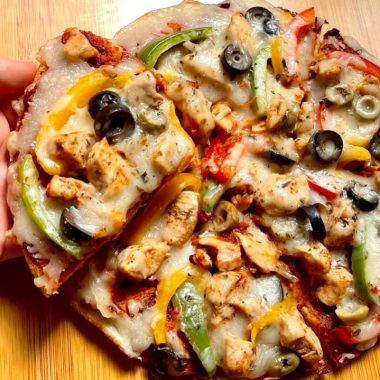It is estimated that about half of adults try to lose weight each year
And one of the best ways to lose weight is by changing your diet.
However, the sheer number of diet plans available can make it difficult to get started, as you are not sure which one is the most suitable, sustainable and effective.
Some diets aim to curb your appetite to reduce your food intake, while others suggest restricting your intake of calories, carbohydrates or fats.
What’s more, it offers many health benefits beyond weight loss.
Here are the 8 best diets that will help you lose weight and improve your overall health.
intermittent fasting
Intermittent fasting is a dietary strategy that rotates between periods of fasting and eating.
Variations exist, including the 16/8 method, which involves limiting calorie intake to 8 hours per day, and the 5:2 method, which limits daily caloric intake to 500-600 calories twice a week.
How it works: Intermittent fasting limits the time you’re allowed to eat, and it’s a simple way to reduce your calorie intake. This can lead to weight loss – unless you compensate by eating a lot during the permitted eating periods.
Weight loss: In a review of studies, intermittent fasting was shown to cause 3-8% weight loss over 3-24 weeks, which is a much larger percentage than other methods.
The same review showed that this way of eating may reduce waist circumference by 4-7%, which is a sign of harmful belly fat).
Other studies have found that intermittent fasting can increase fat burning while preserving muscle mass, which can improve metabolism.
Other benefits: Intermittent fasting has been linked to anti-aging effects, increased insulin sensitivity, improved brain health, reduced inflammation, and many other benefits.
Cons: In general, intermittent fasting is safe for most healthy adults.
However, people with low blood sugar levels, such as some people with diabetes, low weight or eating disorders, as well as women who are pregnant or breastfeeding, should speak to a health professional before beginning intermittent fasting.
Summary of intermittent fasting cycles between periods of fasting and eating. It has been shown to aid in weight loss and is linked to many other health benefits.
vegetarian diets
Plant-based diets may help you lose weight. which restrict animal products for health, ethical and environmental reasons.
However, there are also more flexible vegetarian diets, such as the flexitarian diet, which is a vegetarian diet that allows animal products to be eaten in moderation.
How it works: There are many types of plants, but most involve getting rid of all meat, poultry, and fish. Some vegetarians may avoid eggs and dairy.
It takes the vegan diet a step further by restricting all animal products, as well as animal-derived products such as dairy, gelatin, honey, whey, casein, and albumin.
There are no clear rules for the binary diet, because it is a lifestyle change, not a diet. It encourages eating mostly fruits, vegetables, legumes, and whole grains but allows protein and animal products in moderation, making it a popular alternative.
Many restricted food groups are high in calories, so limiting them may help you lose weight.
Weight loss: Research suggests that plant-based diets are effective for weight loss.
A review of 12 studies including 1,151 participants found that people who ate a vegan diet lost on average (2 kg) more than those who included animal products.
Additionally, those following a vegan diet lost an average (2.5 kg) more than people who did not eat a vegan diet.
Plant-based diets likely help with weight loss because they tend to be high in fiber, which may help you stay fuller for longer, and lower in high-calorie fats.
Other benefits: Plant-based diets have been linked to many other benefits, such as reducing the risk of chronic diseases such as heart disease, some types of cancer, and diabetes. They can also be more environmentally sustainable than meat-based diets
Downsides: Although plant-based diets are healthy, they can restrict important nutrients typically found in animal products, such as iron and vitamin C.
B12, vitamin D, calcium, zinc and omega-3 fatty acids.
A flexible approach or appropriate supplementation can help account for these nutrients.
Summary Vegetarian diets restrict meat and animal products for various reasons. Studies show that it helps with weight loss by reducing your calorie consumption and offers many other benefits.
Low carb diet
Low-carb diets are among the most popular for weight loss. Examples include the Atkins diet, the ketogenic (keto) diet, and the low-carb, high-fat diet
Some varieties reduce carbohydrates significantly more than others. For example, low-carb diets like the keto diet restrict this macronutrient to less than 10% of total calories, compared to 30% or less for other types.
How it works: Low-carb diets restrict your carb intake in favor of protein and fat.
Protein is usually higher than on low-fat diets, which is important, because protein can help curb your appetite, increase metabolism, and preserve muscle mass.
On low-carb diets like keto, the body starts using fatty acids instead of carbohydrates for energy by converting them into ketones. This process is called ketosis.
Weight loss: Several studies suggest that low-carb diets can aid weight loss and may be more effective than traditional low-fat diets.
For example, a review of 53 studies including 68,128 participants found that low-carb diets led to significantly greater weight loss than low-fat diets.
Furthermore, low-carb diets appear to be very effective in burning belly fat).
Other benefits: Research suggests that low-carb diets may reduce risk factors for heart disease, including high cholesterol levels and blood pressure. It may also improve blood sugar and insulin levels in people with diabetes
Downsides: In some cases, a low-carb diet may raise LDL (bad) cholesterol levels. Low-carb diets are also difficult to follow and cause digestive upsets in some people.
In very rare cases, a low-carb diet may lead to a condition known as ketoacidosis, a serious metabolic condition that can be fatal if left untreated).
Summary Low-carb diets restrict your carbohydrate intake, which encourages your body to use more fat as fuel. It can help you lose weight and provide many other benefits.
paleo diet
This is based on the theory that modern diseases are linked to the Western diet, with proponents believing that the human body did not evolve to process legumes, grains, and dairy products.
How it works: The paleo diet advocates eating whole foods, fruits, vegetables, lean meats, nuts, and seeds. It restricts consumption of processed foods, grains, sugar and dairy products, although some less restrictive versions allow some dairy products such as cheese.
Weight loss: Several studies have shown that the paleo diet can help you lose weight and reduce harmful belly fat.
For example, in one three-week study, 14 healthy adults who followed the paleo diet lost an average of 5.1 pounds (2.3 kg) and reduced their waist circumference — a marker for belly fat — by an average of 0.6 inches (1.5 cm).
Research also suggests that the paleo diet may be more appropriate than common diets such as the Mediterranean diet and low-fat diets. This may be due to its high protein content).
Other benefits: Following a paleo diet may reduce many heart disease risk factors, such as high blood pressure, cholesterol, and triglyceride levels.
Downsides: Although the paleo diet is healthy, it restricts several nutritious food groups, including legumes, whole grains, and dairy.
Bottom line: The paleo diet advocates eating whole foods, similar to how your grandparents ate. Studies show that it may help with weight loss and reduce heart disease risk factors.
Low-fat diets
Like low-carb diets, low-fat diets have been popular for decades.
In general, a low-fat diet involves restricting fat intake to 30% of daily calories.
Some very low or low fat diets aim to limit fat consumption to less than 10% of calories.
How it works: Low-fat diets restrict the amount of fat because fat provides about twice as many calories per gram, compared to two other major nutrients – protein and carbohydrates.
Low-fat diets contain less than 10% of calories from fat, with about 80% of calories coming from carbohydrates and 10% from protein.
Low-fat diets rely primarily on plants and limit meat and animal products.
Weight loss: Because low-fat diets restrict calories, they can help with weight loss.
An analysis of 33 studies including more than 73,500 participants found that a low-fat diet led to small but relevant changes in waist circumference and waist circumference.
However, while low-fat diets appear to be as effective as low-carb diets for weight loss in controlled settings, daily low-carb diets appear to be more effective.
Low-fat diets have proven successful, especially among people with obesity. For example, an 8-week study in 56 participants found that eating a diet with 7-14% fat resulted in an average weight loss of 14.8 lbs (6.7 kg.
Other benefits: Low-fat diets have been linked to a reduced risk of heart disease and stroke. It may also reduce inflammation and improve signs of diabetes.
Downsides: Restricting fat too much can lead to health problems in the long run, because fats play a key role in hormone production, nutrient absorption, and cell health. Furthermore, low-fat diets have been linked to a higher risk of developing metabolic syndrome.
Summary Low-fat diets restrict the amount of fat you eat, because these macronutrients are higher in calories than protein and carbohydrates. Studies have linked low-fat diets to weight loss and a lower risk of heart disease and diabetes.
mediterranean diet
The Mediterranean diet is based on the foods that people in countries like Italy and Greece used to eat.
Although it was designed to reduce the risk of heart disease, several studies suggest that it can also help with weight loss.
How it works: The Mediterranean diet calls for eating plenty of fruits, vegetables, nuts, seeds, legumes, tubers, whole grains, fish, seafood, and extra virgin olive oil.
Foods such as poultry, eggs and dairy products should be eaten in moderation. Meanwhile, red meat is limited.
Additionally, the Mediterranean diet restricts refined grains, trans fats, refined oils, processed meats, added sugar, and other highly processed foods.
Weight loss: Although it is not a specific weight loss diet, several studies have shown that a Mediterranean-style diet may help with weight loss.
For example, an analysis of 19 studies found that people who combined a Mediterranean diet with exercise or calorie restriction lost an average of 8.8 pounds (4 kg) more than those who ate a control diet.
Other benefits: The Mediterranean diet encourages eating plenty of foods rich in antioxidants, which may help fight inflammation and oxidative stress by neutralizing free radicals. It has been linked to a reduced risk of heart disease and early death.
Downsides: Since the Mediterranean diet is not a weight loss diet, people may not lose weight after following it unless they also consume fewer calories.
Summary The Mediterranean diet emphasizes eating plenty of fruits, vegetables, fish, and healthy oils while restricting highly refined and processed foods. While it is not a weight loss diet, studies have shown that it can promote weight loss and overall health.
WW (Weight Watchers)
WW, formerly known as Weight Watchers, is one of the most popular weight loss programs worldwide.
Although it does not restrict any food groups, people on the diet should eat within their daily set points to reach their ideal weight.
How it works: It is a points-based system that allocates a different value to foods and drinks, depending on calories, fats, and fiber.
To reach your desired weight, you must remain within the daily package limits.
Weight loss: Several studies show that the program can help you lose weight.
For example, a review of 45 studies found that people who followed the diet lost 2.6% more weight than people who received regular counseling.
What’s more, people who follow the program have been shown to be more successful in maintaining weight loss after several years, compared to those who follow other diets.
Other advantages: Allows flexibility, making it easy to follow. This allows people with dietary restrictions, such as those with food allergies, to stick to this plan.
Downsides: Although it allows for flexibility, it can be expensive depending on the subscription plan. Also, resilience can be a downfall if dieters choose unhealthy foods.
Summary is a weight loss program that uses a points-based system. Studies show that it is effective for long-term weight loss and high flexibility.












